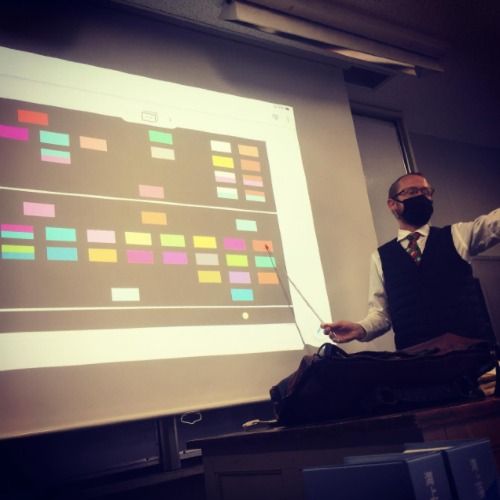Episode 3
Forty Stories - "Mustang"
I'm doing a little survey to find out more about ALE listeners. There are just four tiny questions. It will only take a minute or two, and will help me a LOT! Please check it out. Thanks, Cooper
👇👇👇👇👇👇👇👇👇👇👇
Season 3 Episode 3Thank you for downloading this episode.
You really, really should watch this video to understand just what kind of car we are talking about: CLICK HERE TO WATCH
👉The story begins at 1:42 and the tiny lessons begin at 16:50
👉You can find the transcript after the Credits!
👉Visit our website to download the Podcast User's Manual and find out more! https://alittleenglish.com/
A Little English is written, produced, recorded, edited, mixed, mastered and scored by Edward Cooper Howland.
All stories are either in the public domain, or written by me.
Copyright 2026 Edward Cooper Howland
⭐ ⭐ ⭐ ⭐ ⭐ ⭐ ⭐ ⭐ ⭐ ⭐ ⭐ ⭐ ⭐ ⭐⭐ ⭐ ⭐ ⭐ ⭐ ⭐ ⭐ ⭐ ⭐ ⭐ ⭐ ⭐ ⭐
TRANSCRIPT:
Hi. My name is Cooper, and this is…A Little English. Every episode, I read a short story. After the story, there are three tiny lessons.
Today’s story comes with a Content Warning: it’s about a panic attack, and there’s a conversation about mental illness. Nothing too serious, but if you’re not in the mood to hear something like that, maybe stop and come back later. Don’t worry, though. There’s other stuff in the story. In fact, if you don’t know what a 1967 Ford Mustang looks and sounds like, go ahead and pause right now. Look in the show notes, I’ve added a link to a youtube video . Check it out. It’s pretty awesome…
So, of course, the name of this story is… Mustang.
Carl was dying. He was standing in his kitchen and he couldn’t breathe, and he was dying. The edges of his vision were blurry. He couldn’t breathe. He heard a noise. Short and sharp and fast, it repeated again and again and again, identical.
Dottie was in the next room, finishing her coffee. If he called her, she would come and take him to the hospital. But they couldn’t afford an ambulance. They couldn’t even afford to keep what they had.
The noise was coming faster now and his vision was narrowing to a tunnel. He was in a white tunnel. He was sure that he was dying. He couldn’t breathe. He couldn’t find the breath to call his wife’s name.
Suddenly, he was sitting on the floor. His back hurt. Had he fallen?
He could feel his heart pounding against his ribs, like it wanted to escape. Like it wanted to burst out of his chest and run screaming down the hall. He was having a heart attack, and he was going to die here on his own stupid kitchen floor.
He could hear her voice. It sounded like she was underwater. Or maybe like he was underwater and she was on the beach, calling to him. Like she was miles away. She was saying his name.
The noise was starting to slow down. It sounded like a dog panting on a summer day.
It was him. The noise was him.
It was his own breath, and it was starting to slow down. The tunnel widened, and he could see the kitchen door, and the Mustang in the driveway. Her hands were under his arms now, lowering him onto his back. He was laying on the floor and she was there with him.
“Dottie?” he gasped. “I’m having a heart attack. I’m dying.”
“You’re not dying, Carl. It’s just a panic attack.”
“How do you know?” he said. “I can’t breathe and my heart’s going to explode and I’m going to die.”
“You’ve never had a panic attack before?”
“I’ve never felt anything like this in my entire life. I couldn’t see.”
“Well, you’re pretty lucky, then. Jean used to have them all the time. Just focus on your breath for a little while. Breathe in through your nose, slowly, and now breathe out through your mouth.”
In eight years, Carl had never cried in front of Dottie. He hadn’t cried when he put that nail through his foot. He hadn’t cried when the dog died. He had cried when his mother died, but he did it in the coat closet when Dottie was out of the house.
He knew he was crying now because he could see the surprise on her face. He could feel the tears on his cheeks and suddenly his whole body was shaking as he turned and hid his face in his hands. He sobbed like a child.
“I’m sorry,” he bawled into his hands. “This is so stupid.”
“Shhhhh,” whispered Dottie. “It’s fine.”
She was on the floor with him, stroking his hair with one hand. With the other she picked up a crumpled piece of paper from where it had fallen when Carl sat down.
“What’s this?”
“It’s the bill of sale for Dad’s Mustang.” He had pushed himself up onto one arm. “The buyers sent it over. We just need to fill out our info, and then we all go to the DMV together. ”
“And then it’s theirs?”
“Yeah.”
“But for now it’s still ours, right?” She was standing now, pulling at his hand. “Get the hell up, Carl. Let’s go for a drive.”
They walked out into the sun, Carl wiping snot and tears from his face with his sleeve.
The Mustang sat in the driveway, cherry-red and polished chrome.
“Come on,” she was walking around to the passenger’s side.
Carl got in the driver’s seat and breathed deeply. It smelled like leather and oil and Dad’s cigar smoke. He turned the key. The engine thundered for a moment before settling into its neutral purr. It was breathing, slowly and steadily. He reached down and put it in reverse. “You said Jean had those all the time, when you were kids?”
She looked at him. “Panic attacks? Yeah. She still does sometimes.”
“Do you know why?”
“I do. And it’s none of your business.”
He waited a moment at a stop sign. “And, like, how did she deal with it?”
“She didn’t for a long time, and it just got worse and worse. Eventually she had to spend a couple weeks in a center.”
“Like…a…?”
“Like a residential psychiatric hospital. And they got her sober and into therapy and yoga and breathing and stuff, and when she got out, she taught me how to help her when she couldn’t help herself. I was eleven.”
“Well. Yoga. I dunno if I can do yoga.”
“It helped her.”
They drove on in silence for a few minutes. She rolled her window down and he breathed deeply, carefully, smelling the summer air and the exhaust and her perfume. He turned on the AM radio and found a ball game. When they hit the deep country and Carl was pretty sure there wasn’t another car for miles, he started to stand on the gas. The Mustang roared like a circus beast pulling on its chain. Carl could feel it, vibrating up through the seat and into his whole body.
When they hit fourth gear, the vibration smoothed out and Dottie put her hand on his, both of them holding the gearshift together.
“Just keep going,” she whispered. “Go to Vermont. Go to Canada. Let’s just go somewhere for the weekend. We haven’t signed the papers yet. It’s still ours.”
Carl looked at his wife, and he thought about how far they could get with the money they had in the bank. He thought about last week when he had to put just sixteen dollars worth of gas into the tank, because sixteen dollars was all he had until payday.
“Nah,” he said. “That’s what Dad would have done. And this isn’t his car anymore. It’s mine. Let’s go on home.”
Well, there you go. That’s my story about a 1967 Red Ford Mustang, and a man’s first panic attack. Have you ever had a panic attack? I have. More than a few, especially these last couple years with COVID and everything. That one actually came straight from my life. I really thought I was having a heart attack and that I was gonna die. But I survived.
I think it’s really important to talk openly about mental health issues. I think that pretty much everyone is carrying a lot of pain, now more than ever. And I think if we talk about it, we might realize that it’s not strange or bad. It’s just part of life. So a lot of these forty stories are gonna be about people struggling with their pain. Because…everyone is.
Let’s do a couple tiny lessons.
It’s a beautiful day for a drive. What a lovely Big Picture.
Why did Carl have a panic attack? Take a moment and think. It’s because he had to sell the car. But more than that, it’s because he had to sell his dad’s car. And clearly, Carl has some…issues with his Dad. But hey, who doesn’t?
And the Dictionary Disco? Think we can dance all night?
Our first vocabulary word is: panting. Like I said in the story, it’s the sound that a dog makes after it’s been running. With its tongue hanging out. You know that sound. I’m not gonna do it here, because…it would be a little gross.
Speaking of gross, the second vocabulary word is: snot. Snot is a great word. It’s mucus. From your nose. Like when you’re sick, or crying. Snot. Really sounds like what it is, right? Snot
Finally, we need to slow down and breathe for our melody moment.
Back at Christmas, we talked about the Hyperschwa. That’s when a schwa is so tiny that it actually deletes itself. The technical term is vowel deletion. But Hyperschwa sounds cooler. But what about the word “dunno?” It’s actually two words: “don’t know” but the O in don’t, it’s so reduced, so deleted, that it actually deletes the T, and drags the two words together. Two words become one! And why do we do this? Because it’s faster and easier. Try it: Don’t know…dunno. Much easier. Maybe we can call this… an ultraschwa!
Let’s do the credits!
Thank you for listening to Season 3 Episode 3 of A Little English.
Every episode is produced entirely by me, Edward Cooper Howland, here in Hiroshima, Japan.
If you like the show, tell someone about it! A recommendation from a friend is the best way to get someone to listen, and I would really appreciate it.
This season, all the stories are written by…me! I use chatGPT by Openai.com as an editor because I can’t afford to hire a human. It’s an amazing, free piece of software, and you should check it out.
Again, thank you so much for listening.
For now, be kind to yourselves, and to each other.
Transcript
Hi. My name is Cooper, and this is…A Little English. Every episode, I read a short story. After the story, there are three tiny lessons.
t, if you don’t know what a:So, of course, the name of this story is… Mustang.
Carl was dying. He was standing in his kitchen and he couldn’t breathe, and he was dying. The edges of his vision were blurry. He couldn’t breathe. He heard a noise. Short and sharp and fast, it repeated again and again and again, identical.
Dottie was in the next room, finishing her coffee. If he called her, she would come and take him to the hospital. But they couldn’t afford an ambulance. They couldn’t even afford to keep what they had.
The noise was coming faster now and his vision was narrowing to a tunnel. He was in a white tunnel. He was sure that he was dying. He couldn’t breathe. He couldn’t find the breath to call his wife’s name.
Suddenly, he was sitting on the floor. His back hurt. Had he fallen?
He could feel his heart pounding against his ribs, like it wanted to escape. Like it wanted to burst out of his chest and run screaming down the hall. He was having a heart attack, and he was going to die here on his own stupid kitchen floor.
He could hear her voice. It sounded like she was underwater. Or maybe like he was underwater and she was on the beach, calling to him. Like she was miles away. She was saying his name.
The noise was starting to slow down. It sounded like a dog panting on a summer day.
It was him. The noise was him.
It was his own breath, and it was starting to slow down. The tunnel widened, and he could see the kitchen door, and the Mustang in the driveway. Her hands were under his arms now, lowering him onto his back. He was laying on the floor and she was there with him.
“Dottie?” he gasped. “I’m having a heart attack. I’m dying.”
“You’re not dying, Carl. It’s just a panic attack.”
“How do you know?” he said. “I can’t breathe and my heart’s going to explode and I’m going to die.”
“You’ve never had a panic attack before?”
“I’ve never felt anything like this in my entire life. I couldn’t see.”
“Well, you’re pretty lucky, then. Jean used to have them all the time. Just focus on your breath for a little while. Breathe in through your nose, slowly, and now breathe out through your mouth.”
In eight years, Carl had never cried in front of Dottie. He hadn’t cried when he put that nail through his foot. He hadn’t cried when the dog died. He had cried when his mother died, but he did it in the coat closet when Dottie was out of the house.
He knew he was crying now because he could see the surprise on her face. He could feel the tears on his cheeks and suddenly his whole body was shaking as he turned and hid his face in his hands. He sobbed like a child.
“I’m sorry,” he bawled into his hands. “This is so stupid.”
“Shhhhh,” whispered Dottie. “It’s fine.”
She was on the floor with him, stroking his hair with one hand. With the other she picked up a crumpled piece of paper from where it had fallen when Carl sat down.
“What’s this?”
“It’s the bill of sale for Dad’s Mustang.” He had pushed himself up onto one arm. “The buyers sent it over. We just need to fill out our info, and then we all go to the DMV together. ”
“And then it’s theirs?”
“Yeah.”
“But for now it’s still ours, right?” She was standing now, pulling at his hand. “Get the hell up, Carl. Let’s go for a drive.”
They walked out into the sun, Carl wiping snot and tears from his face with his sleeve.
The Mustang sat in the driveway, cherry-red and polished chrome.
“Come on,” she was walking around to the passenger’s side.
Carl got in the driver’s seat and breathed deeply. It smelled like leather and oil and Dad’s cigar smoke. He turned the key. The engine thundered for a moment before settling into its neutral purr. It was breathing, slowly and steadily. He reached down and put it in reverse. “You said Jean had those all the time, when you were kids?”
She looked at him. “Panic attacks? Yeah. She still does sometimes.”
“Do you know why?”
“I do. And it’s none of your business.”
He waited a moment at a stop sign. “And, like, how did she deal with it?”
“She didn’t for a long time, and it just got worse and worse. Eventually she had to spend a couple weeks in a center.”
“Like…a…?”
“Like a residential psychiatric hospital. And they got her sober and into therapy and yoga and breathing and stuff, and when she got out, she taught me how to help her when she couldn’t help herself. I was eleven.”
“Well. Yoga. I dunno if I can do yoga.”
“It helped her.”
They drove on in silence for a few minutes. She rolled her window down and he breathed deeply, carefully, smelling the summer air and the exhaust and her perfume. He turned on the AM radio and found a ball game. When they hit the deep country and Carl was pretty sure there wasn’t another car for miles, he started to stand on the gas. The Mustang roared like a circus beast pulling on its chain. Carl could feel it, vibrating up through the seat and into his whole body.
When they hit fourth gear, the vibration smoothed out and Dottie put her hand on his, both of them holding the gearshift together.
“Just keep going,” she whispered. “Go to Vermont. Go to Canada. Let’s just go somewhere for the weekend. We haven’t signed the papers yet. It’s still ours.”
Carl looked at his wife, and he thought about how far they could get with the money they had in the bank. He thought about last week when he had to put just sixteen dollars worth of gas into the tank, because sixteen dollars was all he had until payday.
“Nah,” he said. “That’s what Dad would have done. And this isn’t his car anymore. It’s mine. Let’s go on home.”
go. That’s my story about a:I think it’s really important to talk openly about mental health issues. I think that pretty much everyone is carrying a lot of pain, now more than ever. And I think if we talk about it, we might realize that it’s not strange or bad. It’s just part of life. So a lot of these forty stories are gonna be about people struggling with their pain. Because…everyone is.
Let’s do a couple tiny lessons.
It’s a beautiful day for a drive. What a lovely Big Picture.
Why did Carl have a panic attack? Take a moment and think. It’s because he had to sell the car. But more than that, it’s because he had to sell his dad’s car. And clearly, Carl has some…issues with his Dad. But hey, who doesn’t?
And the Dictionary Disco? Think we can dance all night?
Our first vocabulary word is: panting. Like I said in the story, it’s the sound that a dog makes after it’s been running. With its tongue hanging out. You know that sound. I’m not gonna do it here, because…it would be a little gross.
Speaking of gross, the second vocabulary word is: snot. Snot is a great word. It’s mucus. From your nose. Like when you’re sick, or crying. Snot. Really sounds like what it is, right? Snot
Finally, we need to slow down and breathe for our melody moment.
Back at Christmas, we talked about the Hyperschwa. That’s when a schwa is so tiny that it actually deletes itself. The technical term is vowel deletion. But Hyperschwa sounds cooler. But what about the word “dunno?” It’s actually two words: “don’t know” but the O in don’t, it’s so reduced, so deleted, that it actually deletes the T, and drags the two words together. Two words become one! And why do we do this? Because it’s faster and easier. Try it: Don’t know…dunno. Much easier. Maybe we can call this… an ultraschwa!
Let’s do the credits!
Thank you for listening to Season 3 Episode 3 of A Little English.
Every episode is produced entirely by me, Edward Cooper Howland, here in Hiroshima, Japan.
If you like the show, tell someone about it! A recommendation from a friend is the best way to get someone to listen, and I would really appreciate it.
This season, all the stories are written by…me! I use chatGPT by Openai.com as an editor because I can’t afford to hire a human. It’s an amazing, free piece of software, and you should check it out.
Again, thank you so much for listening.
For now, be kind to yourselves, and to each other.



